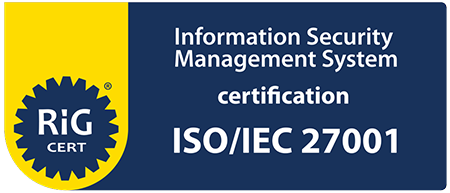We already know - the end of the pandemic will not end the home office and remote working. Our research at the end of 2020 also shows that 86% of the surveyed companies stated they would work remotely between 2 and 4 days a week in the future. HR managers and team leaders need to be prepared to manage their people in a hybrid environment. Moreover, they will be expected not only to take care of the successful live or distant work process but also to develop, engage, retain and pull together their people and teams in both environments. The success and competitiveness of the company will largely depend on this.
Until now, the tracking of these processes could be done entirely in the office, where managers can easily capture attitudes, moods, and potential problems in their teams' work and respond promptly. However, when working remotely, the situation is slightly different, as the physical presence of employees is missing. In this case, leaders have very few opportunities to identify changes in their employees' behavior, commitment, and motivation, which could affect the company's business results.
Here are our 3 proposals for building a highly engaged and motivated team, working both from home and remotely:
1. Invest resources in talent management
The lack of daily physical contact and dialogue with your employees is not a reason to limit your communication with them. On the contrary, modern technologies offer hundreds of ways to increase the frequency and effectiveness of your communication. They can track the progress or the challenges faced by each member of your team. Don't let your good employees go. Do not allow yourself to deprive them of the necessary attention because you are convinced of their loyalty and good performance. Try to find out what prevents the less successful performers from developing. Identify the strengths and weaknesses of each member of your team, their current skills, and motivation to renew and upgrade them. Monitor and record each of your employees' potential and check if they are able to realize it. Remember to regularly reflect their individual commitment in the work process, their energy, motivation, loyalty, and their strategic importance to the company.
Regularly collecting and analyzing this information could help you track the progress of each member of your team, whether working from the office or remotely. There are convenient mobile and web applications that not only build a comprehensive talent portfolio but also help managers see and use the hidden potential in their teams, as well as identify potential HR risks.
2. Show interest and listen to your employees’ opinion
Many companies are already moving to a hybrid working model - a mix of live (face-to-face) & remote (digital) working. It is essential to regularly monitor your employees' attitudes because having a team with some of its members working together in the office and some working remotely hides many challenges that you can easily overcome if you are looking for frequent feedback from your team. But first, ask yourself, does your company have a good feedback culture?
If your employees feel that their opinion is only being sought pro forma, with no actual follow-up results, or that it is being used for "spy" purposes, then be sure that the effect of the survey will not be satisfactory. However, if developed properly, the feedback culture ensures greater team effectiveness, higher levels of trust, and a more positive employer's image. So if you are a leader or HR specialist, it is advisable to provide tools ensuring respondents' anonymity and drawing your attention to their specific problems generating quality informative reports and analyses as a base for your decision-making.
Keep in mind that the annual performance review may not meet your employees' need for regular feedback giving. Used alone, it cannot contribute to the open and relaxed atmosphere in the team. Therefore, consider using tools that provide you with fast and helpful feedback at short intervals, requiring only a few clicks from your employees. Digital solutions for micro feedback and pulse check surveys will help you change the general attitude towards feedback in your company and will build a sense of trust and commitment. The more in-depth classic analyses, such as 360-degree company feedback, can also improve the feedback culture. Still, they must be used as a tool for leadership development, giving a real idea of attitudes, trends, and areas for improvement.
3. Remind them of the corporate values
Remember that when people feel a sense of belonging to their company and recognize its vision, mission, and values, they are more productive, motivated, and engaged. In addition, they are 3.5 times more likely to contribute to the company's success with their full potential, according to a Coqual study.
That is why we recommend that you periodically remind your employees of your corporate values. For example, you can survey weekly or monthly, asking your people to what extent they see a particular value realized in the working process for a given period. This will help for the recognition and influence of this value and its identification as their own. With the modern digital tools, you can easily track the development of each of your corporate values over time in every department and set common criteria and rules for all teams within the company. Remember that collecting feedback from employees has critical importance for the organizational culture and the values affirmation in a company.




